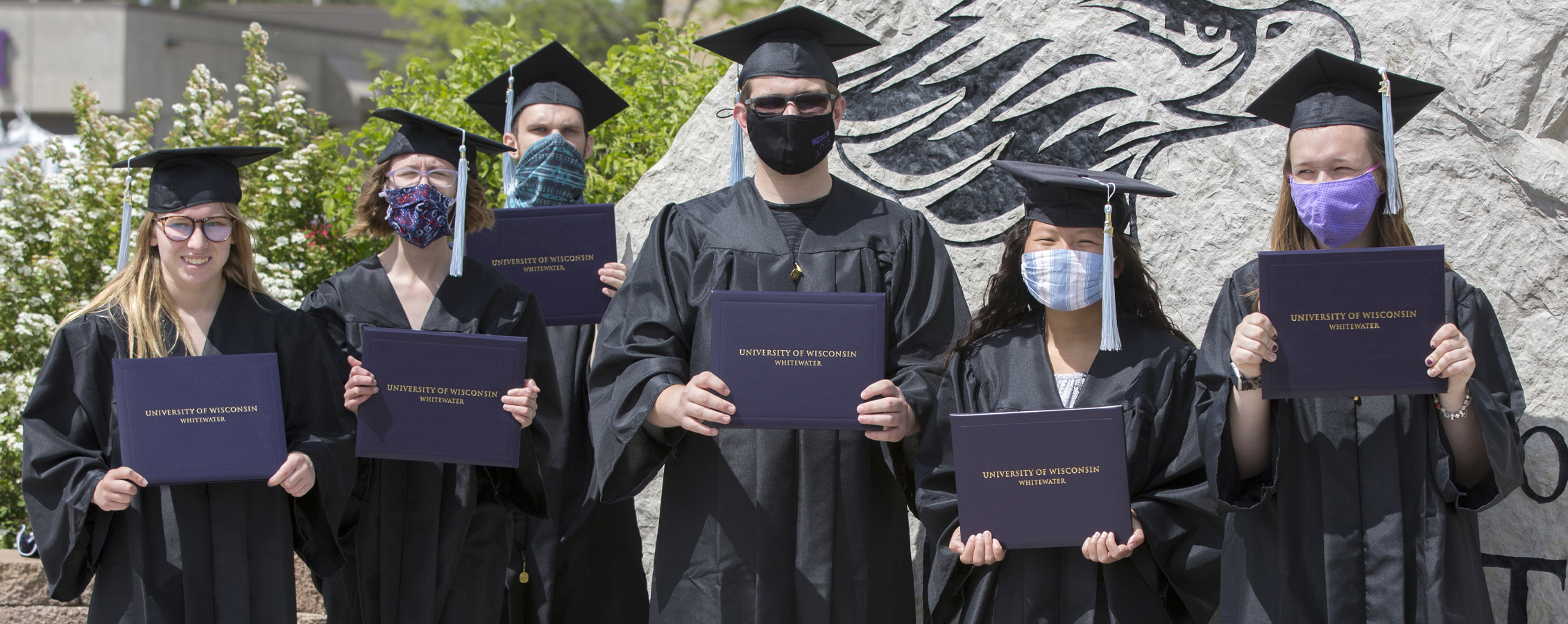UW-Whitewater LIFE program — first in the state — graduates six proud Warhawks
May 11, 2021
Written by Kristine Zaballos | Photos by Craig Schreiner and Kristine Zaballos
Six proud Warhawks, the first cohort of the University of Wisconsin-Whitewater’s LIFE Program, successfully completed their two-year program and crossed the stage in cap and gown in May 2021.
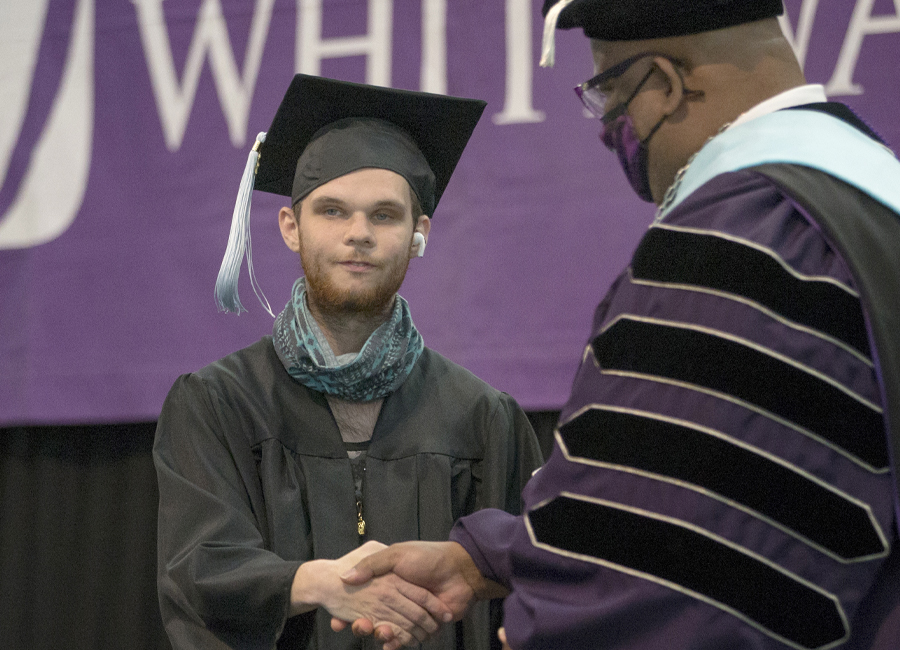
UW-Whitewater LIFE program participant Sam Craden, left, shakes the hand of Chancellor Dwight C. Watson as he crosses the stage on May 14, 2021. (UW-Whitewater photo/Craig Schreiner)
LIFE, which stands for Learning Is For Everyone, is a program that provides a complete college experience for young adults between the ages of 18 and 25 who have an intellectual disability. Students receive ample support programs, specialized instruction, on-campus residential living and community integration. It is the first and only program of its kind in the University of Wisconsin System, according to its director, James Collins.
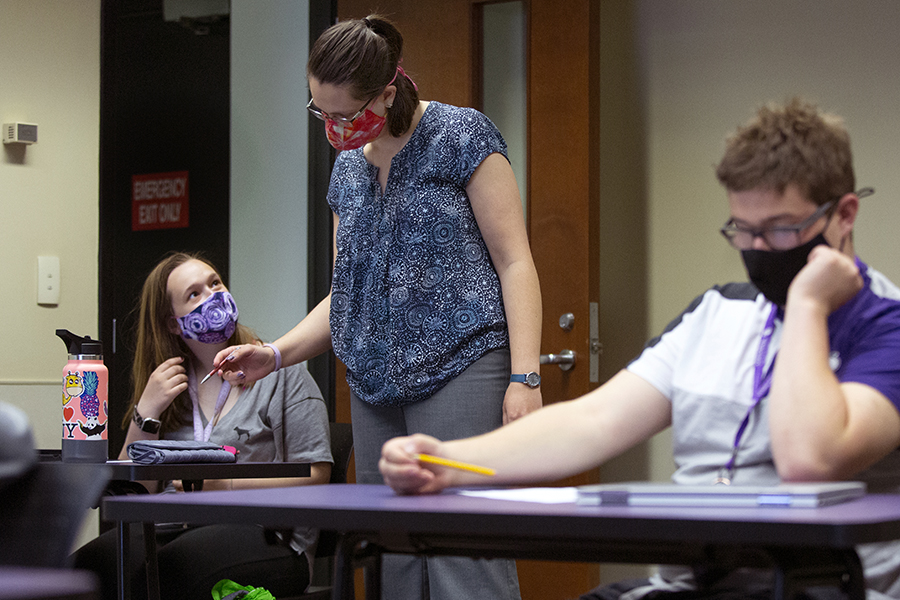
Student Alexis Orkfritz, left, works with instructor Sara Athorp as the LIFE program wraps up their final class on Thursday, May 13, 2021, at Winther Hall on the UW-Whitewater campus. Athorp, who earned a degree in special education and ESL at UW-Whitewater in 2019 and a master’s degree in special education in May 2021, will return as the program’s coordinator next year. (UW-Whitewater photo/Craig Schreiner)
“This is a group of students who had long been forgotten and excluded from the many opportunities college affords,” said Collins. “We’re redefining what a college education means and meeting significant needs in the community. Our program is personalized for our students, who get to participate in all aspects of campus life — from living in the residence halls to joining clubs like archery, gaming, and Active Minds.”
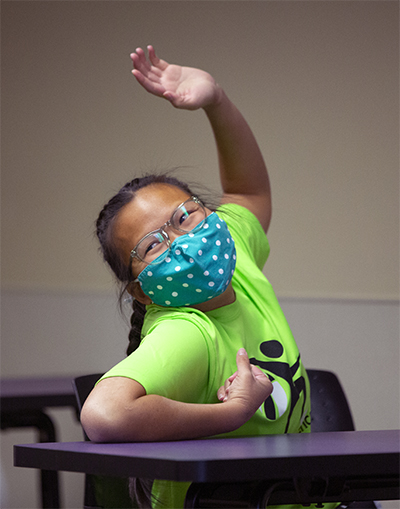
Amelia Pierson raises her hand with an answer during a discussion in class on Thursday, May 13, 2021, at Winther Hall on the UW-Whitewater campus. (UW-Whitewater photo/Craig Schreiner)
“Our UW-Whitewater LIFE students get access to everything that comes with the classic college experience, and rightfully so: they are Warhawks just like everybody else across campus.”
The program has two components: the two-year basic program and an advanced two-year program, designed to facilitate independent living and employment success, in addition to a variety of other essential skills and outcomes that align with a meaningful postsecondary education. The U.S. Department of Education has designated UW-Whitewater LIFE as being a Comprehensive Transition and Postsecondary Program, which makes students eligible for some forms of Federal financial aid, including Pell grants.
One of the hallmarks of the program is the required residence on campus, which helps dismantle barriers and creates substantive opportunities for students to fully participate in campus activities as it prepares students to live a healthy and balanced lifestyle, including regular exercise and participation in enjoyable leisure activities.
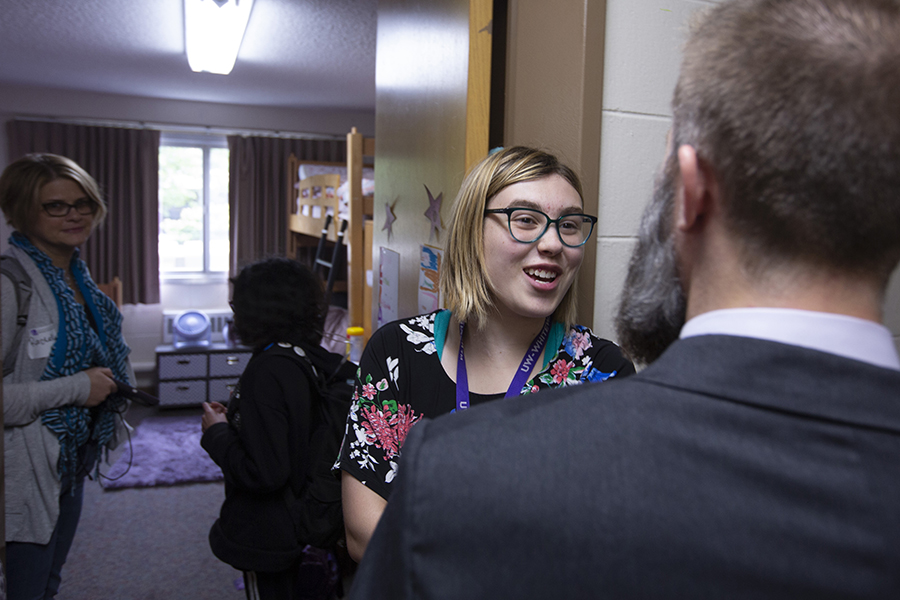
UW-Whitewater LIFE student Lola Abu-Shawareb, from Madison, talks with program creator, Associate Professor of Special Education James Collins, as families tour her residence hall room in Tutt Hall during an open house on campus on Oct. 4, 2019. (UW-Whitewater photo/Craig Schreiner)
A trained, dedicated resident assistant lives in the residence hall with the students, helping them develop essential skills in non-academic domains. Called independent living assistants, these students, who come from a variety of majors, serve an important role in the program’s success and share many of the same responsibilities as a traditional campus resident assistant, but with additional supportive duties such as helping students with tasks of daily living, promoting independence, providing mentoring, facilitating social and leisure opportunities, and helping students acclimate to campus life.
One of the independent living assistants is Michala King, who earned a B.A. in social work this May.
“My mom did similar work with students with intellectual disabilities where I grew up,” said Michala. “It made me want to do it too — to be part of their academic journey, to help them gain independence and to see them gain confidence.”
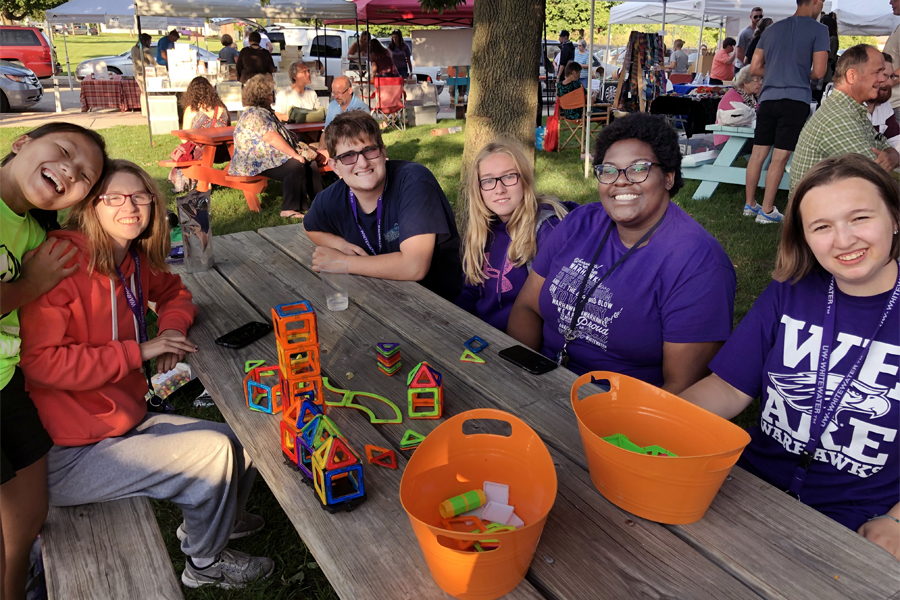
Being connected to the local community is an important feature of the UW-Whitewater LIFE program. From left, UW-Whitewater students Amelia Pierson, Sera Lira, Nathan Barnes, Caitlin Salzeider, Michala King, and Alexis Orkfritz visit Whitewater City Market on Sept. 17, 2019. Amelia, Sera, Nathan, Caitlin, and Alexis are five of the six students in the first cohort to successfully complete the program, and Michala, a social work major from Wisconsin Rapids, served as an independent living assistant for the students in Tutt Hall on campus. (UW-Whitewater photo/Kristine Zaballos)
“I really enjoyed working with these students over the last two years,” she added. “They have become a big part of my life.”
The first group of students to graduate the program are Nathan Barnes, from Racine, Sam Craden, from Menomonee Falls, Sera Lira, from Oshkosh, Alexis Orkfritz, from Baraboo, Amelia Pierson, from Oconomowoc, and Caitlin Salzeider, from Kenosha.

Six proud Warhawks, the first cohort of the University of Wisconsin-Whitewater’s LIFE Program, celebrate after successfully completing their two-year program and crossing the stage in cap and gown on May 14, 2021. From left are Caitlin Salzeider, Sera Lira, Sam Craden, Nathan Barnes, Amelia Pierson and Alexis Orkfritz. (UW-Whitewater photo/Craig Shreiner)
“Four of these students will be returning next year for the advanced program, and they’ll be moving from Tutt Hall to off-campus living to take their independence to the next level,” said Collins.
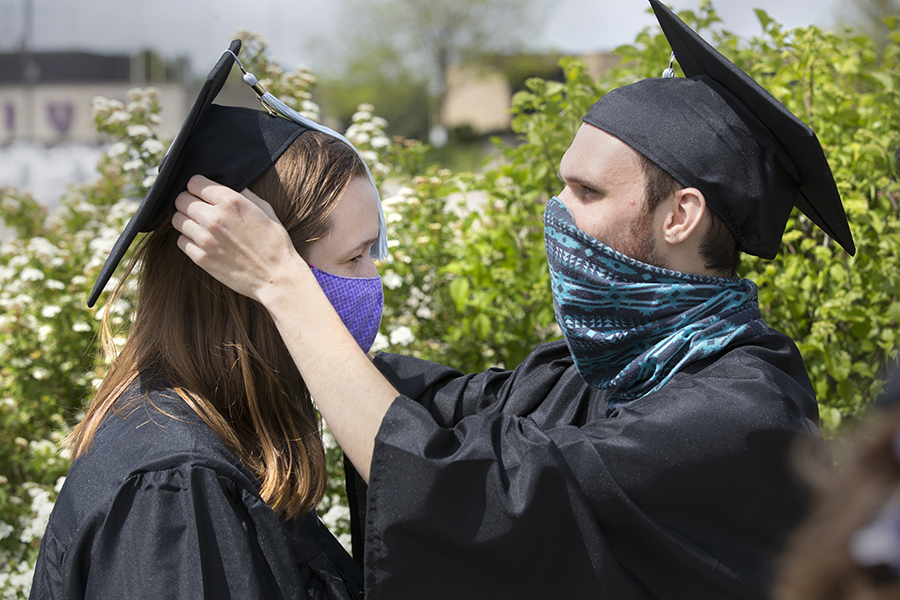
Sam Craden, right, helps Alexis Orkfritz to put her mortarboard in place. The two are in the first cohort of the UW-Whitewater Learning Is For Everyone (LIFE) program. Graduating seniors were recorded receiving their degrees for audiences who will watch on Saturday on Friday, May 14, 2021. (UW-Whitewater photo/Craig Schreiner)
For more information, visit the UW-Whitewater LIFE Program.

